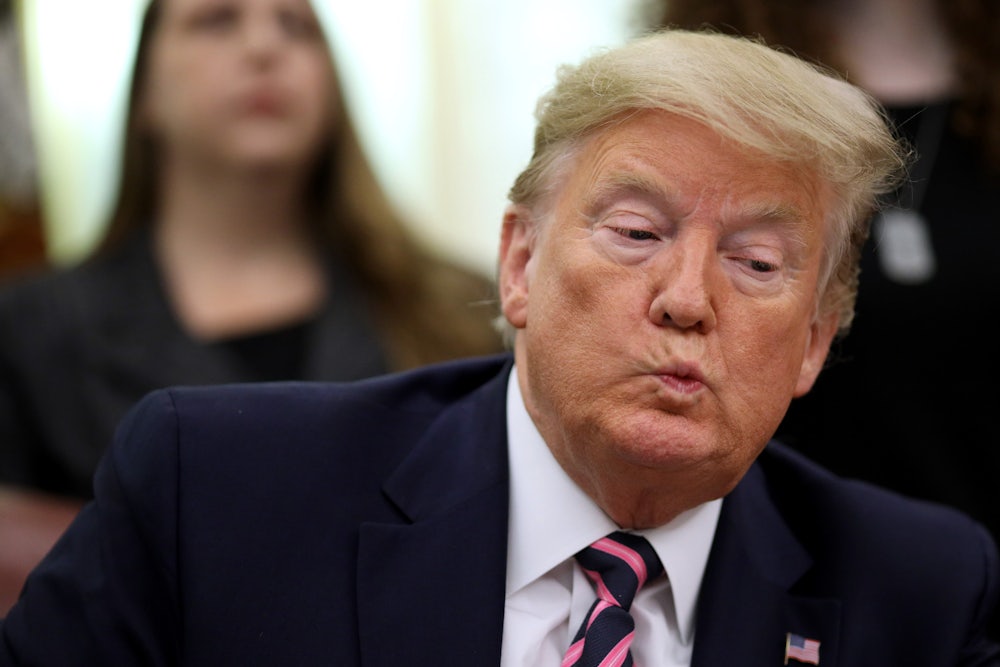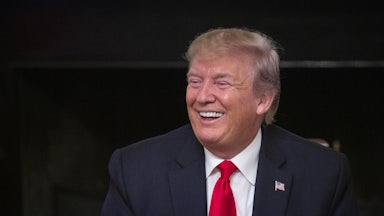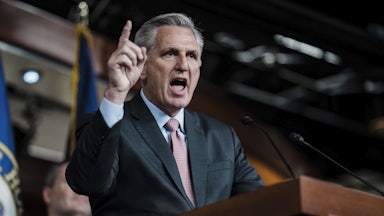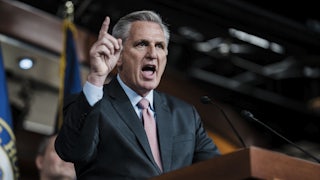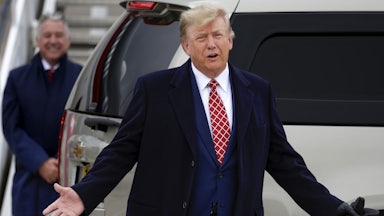The sober, reasonable, and correct take about the allegations contained in the 49-page indictment unsealed by the Department of Justice on Friday is that Donald Trump’s handling of classified documents was stunningly reckless and brazenly criminal. Unlike the case he is facing in New York relating to hush-money payments sent out during the 2016 campaign, this is not especially complicated, legally speaking: Trump knew he had classified material, and he refused to hand it over; not only that, he repeatedly showed it to people without proper clearances and had it stored in places that could charitably be described as “unsecured”—his bedroom, a shower, the Mar-a-Lago ballroom. As my colleague Matt Ford wrote in his characteristically perceptive piece about the indictment, while the former president has “developed a reputation for evading accountability for his actions over the years, Friday’s indictment will test that ability to its limits.”
All of that is correct. But there’s something else that stands out to me about the indictment: It’s really funny. Much of that is in the document’s details, which contain several instances of Trump walking around Mar-a-Lago bragging about all of the classified documents he has stashed around his club or showing said documents to people while also telling them he shouldn’t be doing it. You may never see so many flagrant and stupid violations of the Stringer Bell rule in one place. At one point, Trump literally tells a member of his political action committee not to stand so close to a document he is showing them because they’re not supposed to see it, as if standing, say, six feet away from a document instead of two feet makes any kind of difference at all. There are dozens of anecdotes like this in the indictment.
my god it's real https://t.co/wwCjmc1lAs pic.twitter.com/wamJ06qNZb
— Sen. Lemon Gogurt (I - Podcastia) (@Ugarles) June 9, 2023
The indictment is also funny because it could have been avoided. Donald Trump probably would have gotten away with all of this if he had simply returned these documents when he was asked to. There are abundant political and social reasons to not wish to prosecute a former president, after all. And again, all he had to do was hand over the documents he had hauled with him into exile.
It’s not entirely clear why he refused to do this, though Occam’s razor suggests that he simply wanted to hold onto the documents because they make him feel important and special and that he likes showing them to people (even though doing so is illegal) because, well, it makes him feel important and special. His refusal to hand the documents over made this indictment inevitable but, again, he probably wouldn’t have been indicted if he had just ... given them back earlier. He didn’t, and now he has been handed one of the most damning and hilarious indictments in American political history.
There’s also something cathartic about the indictment. Donald Trump is a ridiculous person. His presidency contained several moments that were genuinely funny—Trump staring directly into a solar eclipse; Trump grinning surrounded by hundreds of McDonald’s hamburgers; Trump slamming on the horn of a big truck like a 3-year-old—but they were sparse. He was nearly always absurd and grotesque, but there were continual reminders that he also possessed real power. This was terrifying. This indictment is not like this. He held onto these documents for no good reason, and now he’s being arrested. That’s funny.
In theory, Trump’s rivals for the Republican nomination should be able to leverage this. It encapsulates one of the strongest arguments against Donald Trump as a politician and candidate: He is reckless, incompetent, and, above all, self-defeating. He is world historically scandal-prone. His unprecedented ability to shoot himself in the foot imperils his (disgraceful and authoritarian) political project at every turn. But Trump’s rivals will not make this case because they are terrified of his voters and of him. That’s funny too.
